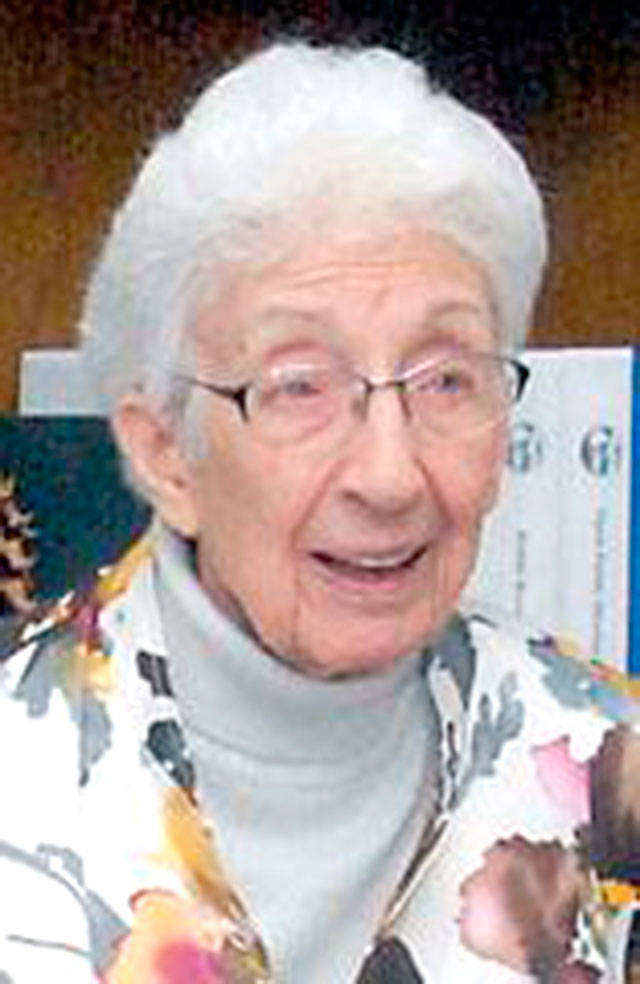PORT ANGELES — Port Angeles City Council members will make public comment sessions mandatory for city advisory committees, answering a major concern of proponents of changing Port Angeles’ form of government to a second-class designation.
Council members reached a consensus agreement at their work session Tuesday to model the public comment procedures after the city council’s regimen.
In addition, committee agendas will be posted on the city website at http://tinyurl.com/PDN-PaCity. All committee meetings will be held in council chambers, as is the case with some committees, in the Jack Pittis Conference Room at City Hall.
Under the new rules, 15-minute public comment sessions will be held at the beginning and end of each committee meeting, with three minutes of comments allowed for each speaker and longer overall periods allowed by the committee or commission chair.
“Congratulations to the city council,” council critic and second-class-city proponent Eloise Kailin of Sequim said Wednesday.
“A major concern has been addressed.”
Kailin is an organizer of the anti-fluoridation group Our Water, Our Choice!
The group led a petition drive to get the second-class-city proposal on the Nov. 7 ballot after the city council refused to stop fluoridating the municipal water supply, a decision it reversed in August in preparation for an advisory ballot on fluoridation, also slated for Nov. 7.
City Manager Dan McKeen said Wednesday he will prepare a proposal based on the council’s Tuesday consensus for consideration at a council meeting in June.
McKeen said there are no uniform standards for accepting comment at the committee meetings.
“It’s not that they didn’t allow it,” he said.
“But there has never been a specific structure in place that identified it in the ordinance.
“There will be now.”
The codification of the procedure will affect the planning commission, Utility Advisory Committee, Lodging Tax Advisory Committee, Public Safety Advisory Board and Civil Service Commission.
It also will affect the Port Angeles Forward Committee, which the council agreed should meet quarterly instead of monthly.
Council approval of a public comment procedure would make approval of the second-class-city ballot measure “much less necessary,” Kailin said.
Approval would change the city government from a home-rule-directed code designation to a state-law-directed status and would require the election of a new city council, four members of which will be chosen in the Nov. 7 election.
“Probably it isn’t really” necessary, Kailin said of the potential change to city government.
“The people are getting listened to a little better now.
“I don’t feel the pressure that we felt before.”
Kailin would not say how she would vote on the ballot proposal if she were a Port Angeles resident.
“I support the petition that I brought in,” she said.
“I have an obligation to those people as caretaker of that petition.”
Setting designated public comment sessions for committees was pushed as a council priority by Councilman Lee Whetham after second-class-city proponents highlighted public comment concerns as a reason to change from a code city.
But citizens were bringing it to city officials’ attention “long before second-class city came up,” McKeen said.
“Public comment issues and citizen concerns were brought up well before that issue.”
Council members also agreed by consensus Tuesday to eliminate the Real Estate Committee, which can meet monthly.
As a council subcommittee, it was not created by ordinance and is composed of three council members, presently Mayor Patrick Downie and Councilmen Dan Gase and Whetham.
It has been meeting since at least 1967 but holds sessions sporadically, according to City Clerk Jennifer Veneklasen.
“Meetings are routinely canceled because there is no business to discuss,” she said Wednesday in an email.
“The city ends up holding them about four times a year.”
McKeen said the committee meets mostly behind closed doors to discuss real estate matters that could affect the price of property, as is allowed under state law, and to make recommendations on real estate transactions to the full city council.
“The real estate committee is pretty much unlike all other committees,” McKeen said.
It’s also “kind of redundant,” Deputy Mayor Cherie Kidd, who chaired Tuesday’s work session, said Wednesday.
“I would prefer that the real estate issues be brought to the full council in executive session rather than having three exclusive council members make that choice.”
McKeen said Councilman Brad Collins was absent from the work session because he was on vacation, and Downie did not attend the meeting for medical reasons.
________
Senior Staff Writer Paul Gottlieb can be reached at 360-452-2345, ext. 55650, or at pgottlieb@peninsuladailynews.com.

